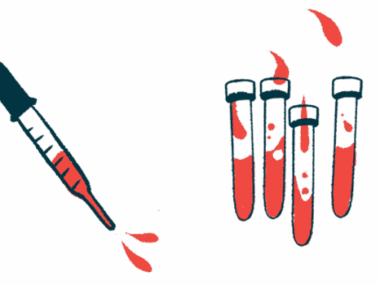How Unresolved Trauma Wreaked Havoc in My Life
Written by |

What happens when we don’t properly deal with unresolved trauma?
I asked myself this question years ago after speaking with my wife and realizing how a pituitary adenoma had affected my life. One of the hardest things for someone with this type of tumor to deal with are the physical and mental changes, which can be drastic and sudden. Experiencing this put me in a state of shock.
Activities I was used to doing, such as working out, no longer came easily, and instead resulted in pain throughout my body. My memory was impaired, my moods were constantly fluctuating, and my physical appearance completely changed. All of this became overwhelming for me, and I shut down.
Too often, we as humans suppress trauma, which is how I chose to deal with it before my diagnosis. But eventually we come face-to-face with it and must make a choice: Will I continue to let this control my life, or will I seize control?
Following are some of the ways unresolved trauma affected me.
Throwing in the towel
The first thing I noticed was the chaos caused by my trauma. It not only had a negative impact on me but also on the people in my life. The scariest part was that I had started to normalize my behaviors and justify my actions. The most dangerous place my mind can go is the common saying, “It is what it is.” At this point, I’ve thrown in the towel and given up control.
Before my diagnosis in 2015, I made the mistake of ignoring my health issues. It never occurred to me that something was going on in my brain — literally. I made assumptions about what the issue might be, and I was wrong.
By the time doctors had identified a pituitary adenoma as the source of my symptoms, I was already in a bad place, both mentally and physically. I had checked out and thrown my hands up, but this wasn’t fair to my wife or my family. Staying in this place can lead to a vicious cycle that makes it harder to break trauma’s grip.
A vicious cycle
What do I mean by “vicious cycle”?
I felt many different emotions during this period of my life. I felt shame and guilt for allowing myself to walk around in a poor mental and physical state. Frustration would set in because I didn’t know how to get out of the hole I was in. It seemed like every time I made progress, a new setback would occur. This led to sadness, simply because as hard as it was for me to admit at the time, I was losing hope that things would change. Lastly, I dealt with fear, which prevented me from doing anything, forcing me to accept my situation as it was.
The good news is that it’s possible to combat the effects of trauma.
I felt the best way for me to face it was head-on. To do this, I educated myself as much as possible about pituitary tumors and their effects.
For instance, what treatments were available? Of the options presented to me, removing the tumor seemed like the best course of action. I underwent transsphenoidal surgery later in 2015 to have it removed.
What stood out most during my research was that I was neither crazy nor alone. Others had suffered from this health condition and recovered.
Gathering information is important because it allows us to develop a plan of action that works for us. Keep in mind that everyone’s trauma is different, and it can affect us in different ways. For me, the best way to deal with it was to face it, fight it, and conquer it.
***
Note: Cushing’s Disease News is strictly a news and information website about the disease. It does not provide medical advice, diagnosis, or treatment. This content is not intended to be a substitute for professional medical advice, diagnosis, or treatment. Always seek the advice of your physician or other qualified health provider with any questions you may have regarding a medical condition. Never disregard professional medical advice or delay in seeking it because of something you have read on this website. The opinions expressed in this column are not those of Cushing’s Disease News or its parent company, Bionews, and are intended to spark discussion about issues pertaining to Cushing’s.







Leave a comment
Fill in the required fields to post. Your email address will not be published.